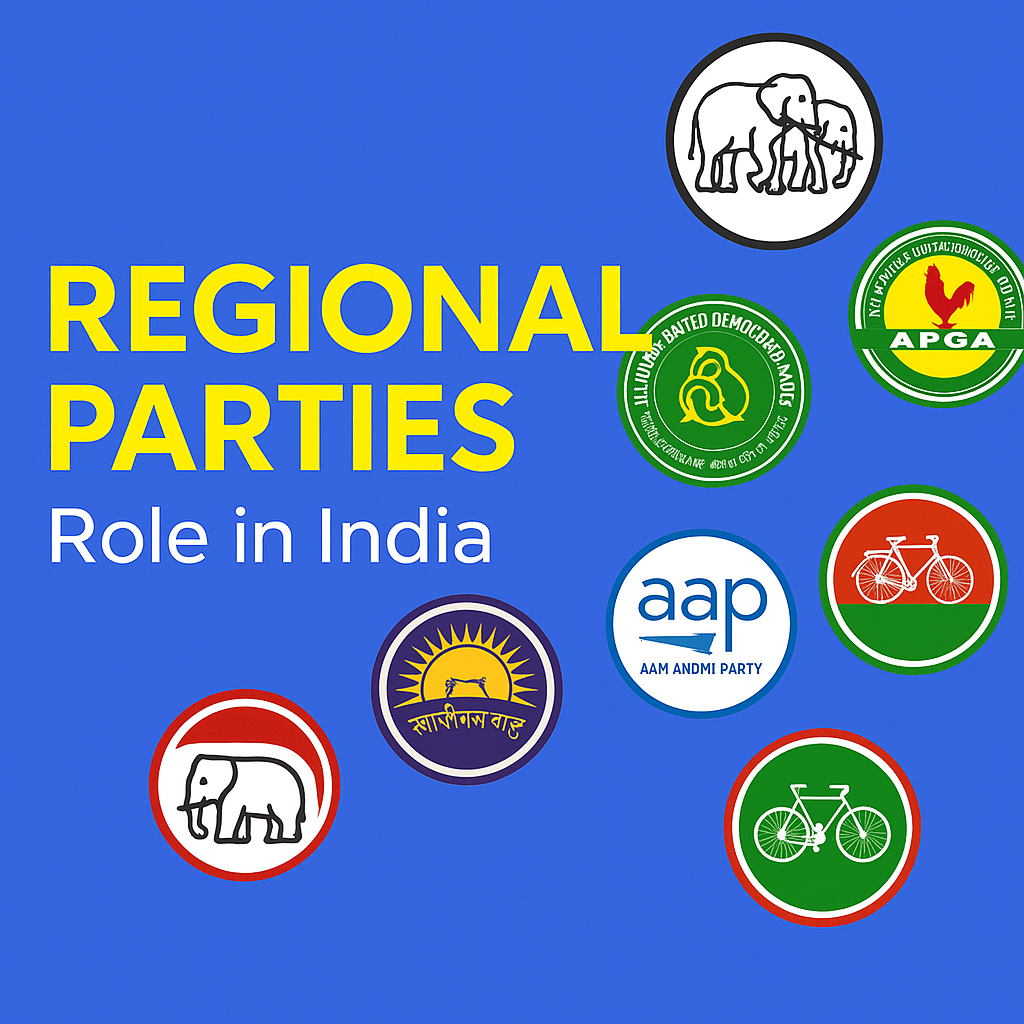Role of Regional Parties in Indian Politics

India’s political landscape is not just shaped by national parties but also by the powerful presence of regional parties. These state-based parties have become key players in both local governance and national decision-making.
Regional parties focus on state-specific issues such as language, culture, development, and regional identity. For instance, the Dravida Munnetra Kazhagam (DMK) in Tamil Nadu, Trinamool Congress (TMC) in West Bengal, Biju Janata Dal (BJD) in Odisha, and Shiv Sena in Maharashtra hold strong influence in their regions.
These parties often form coalition governments at the national level. In fact, many central governments in India since the 1990s have depended on the support of regional parties to maintain a majority. This has given regional voices a significant role in shaping national policies.
One of the key advantages of regional parties is their proximity to local issues. They understand ground realities better and work closely with the people. However, critics often point out the risk of promoting identity politics or favouritism over national interest.
Despite this, regional parties help maintain India’s federal structure, ensuring that the interests of individual states are represented. They are essential for balanced development and inclusive democracy in such a diverse country.
In modern Indian politics, regional parties are no longer just state players. They are kingmakers in Parliament, influencers in policy, and champions of local rights — shaping the democratic journey of India.
